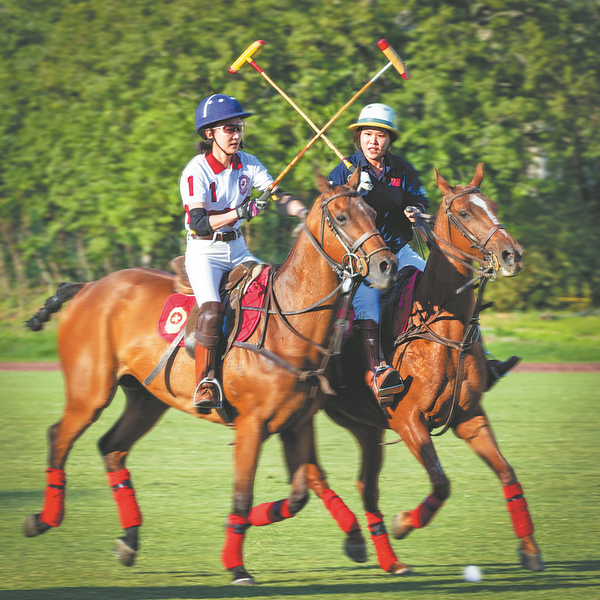In polo position


"Polo is very demanding, physically, mentally, in all aspects, for players and horses alike," the club's head coach Cesar Hugo Palacios says.
"We require the best of horses. They need the intelligence, agility, speed and stamina for the sprints and turns, as well as the ability to be calm and focused, in sync with the players," says Palacios, who is from polo powerhouse Argentina.
The 44-year-old, who has competed worldwide and coached players in China for a decade, says promising, motivated Chinese trainees like Guan will help spur the sport in the country for it to reach top international levels, possibly within the decade.
"The passion for polo is necessary. Knowing the horses and caring for them are essential," he says. "But a comprehensive support network and cultural mindset, including professional staff, related industry and institutions, are also needed. For example, in Argentina we have the 'gaucho' horse-riding tradition and that's important for nurturing equestrian interest and expertise."
To that effect, the club signed a cooperation agreement with the vocational and technical college of the Inner Mongolia Agricultural University in June, involving a joint training base aimed at cultivating talent and professionals in the equestrian and related sectors.
Meng Zhangtao, general manager at the club, says leveraging the resources of the college and industry will help ensure quality and competitiveness in the field.
"What we are doing is also in line with nurturing young people, because they are the future of polo," he says.
"When students are studying abroad and have time to learn polo, they can return to China, return to the club, to improve and hone their skills," says Meng, whose club also hosted the opening summer matches of the country's major polo season that drew players nationwide.




































